Frontiers Communications
Editor
Editor

Frontiers news
10 Jul 2015
Some young scientists have decided, as myself, to have a child during graduate school. Others, probably more numerous, wonder if this is wise. I am not going to dissect the pros and cons in certain situations – others have done this well, elsewhere. However, there is one aspect I believe can be generalized from such a personal experience, and it deserves weight in the decision. That is, having a child in graduate school goes way beyond “having a child in graduate school.” Beyond what people think ”You are going to love being a mother! Having a kid is the best, you will see!” my professor told me when I announced what I thought was an undesirable statement of autonomy, or at least a distraction. Instead, he encouraged me to embrace the implications outside graduate school: it was great! Coincidentally or not, my belly soon popped out to a hard-to-miss circumference, unimaginable for a 12 week /1st pregnancy. Interestingly, this privileged support did not spread through the entire hierarchy in the lab. My colleagues clearly thought my decision was irresponsible. I decided to keep a positive attitude, all the while getting work done – well, it’s true I could no longer fit in between the racks […]

Life sciences
09 Jul 2015
Frontiers Science Hero: Annalisa Pastore from Frontiers on Vimeo. Annalisa Pastore is one of Frontiers Science Heroes. She is currently Frontiers’ Field Editor of Molecular Biosciences. A native of Italy, she has been Professor in Molecular Basis of Neurodegeneration at Kings College London, UK, since 2013. Her focus is on understanding the molecular mechanisms of Friedreich’s ataxia, a neurodegenerative disease progressively leading to a loss of coordination and speech difficulties. She says in her work, she relies on Nuclear Magnetic Resonance (NMR) to identify the structures of proteins involved in the disease messaging pathways. She explains what initially attracted her to this field: “I certainly fell in love with the double helix story when I was 17,” she said. Now, combining theoretical and experimental work, she relies on techniques that are mostly biophysical to elucidate the structure of very proteins that were “one of the loves of her youth.” Her current work was initiated following the discovery, in 1996, of the human frataxin gene associated with Friedreich’s ataxia. “One of the most beautiful things that we have been doing was, really, to understand the link between frataxin and [its role in] the iron-sulfur cluster pathway, she said. This led her to—at least partially— identify the role […]

Frontiers news
08 Jul 2015
Our objective for next year is the recruit 5 to 10 new Specialty Chief Editors covering the fields of Digital Sociology, Digital Media Studies, Digital Writing and Publishing, Digital Education, Digital Museography, Digital Art and Digital Art History.

Frontiers news
07 Jul 2015
Universidad Politécnica de Madrid (UPM) researchers in the UPM observatory (Observatorio de I+D+I UPM) are now able to link their universal Loop profile to the profile on their institutional website. Created by Frontiers, one of the leading open access publishers, Loop launched in January 2015 and is the first Open Research Network that integrates into the website of any publisher or research institution. It is already working seamlessly with two publishing platforms, Nature Publishing Group and Frontiers, with UPM being the first university to incorporate it into their website. “UPM is the largest and one of the most prestigious technical universities in Spain. We worked closely with their team to integrate the Loop platform on their website to help them reach their goals of boosting the visibility and impact of their researchers and faculty members. UPM is the first university to come on board, and we look forward to rolling out further Loop integrations with others in the coming months,” said Kamila Markram, CEO of Frontiers. Loop is designed to work collaboratively with academic platforms and bridge the gaps between researchers, their institutions and their published work. It integrates easily into the workflows of publishers with automated, direct links to […]

Open science and peer review
03 Jul 2015
Selected news, views and information on Open Science and scholarly publishing from the past week
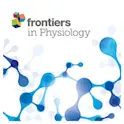
Frontiers news
01 Jul 2015
The most viewed articles from Frontiers in Physiology journals from June 2015. All articles are Open Access – enjoy!

Frontiers news
01 Jul 2015
Catch up with the most viewed articles from Frontiers in Psychology this June. All are Open Access – enjoy!
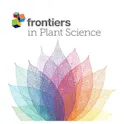
Frontiers news
01 Jul 2015
Catch up with the most viewed articles from Frontiers in Plant Science this June. All are Open Access – enjoy!

Frontiers news
01 Jul 2015
Catch up with the most viewed articles from Frontiers in Neurology this June. All are Open Access – enjoy!
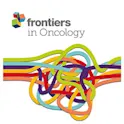
Frontiers news
01 Jul 2015
Catch up with the most viewed articles from Frontiers in Oncology this June. All are Open Access – enjoy!
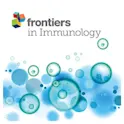
Frontiers news
01 Jul 2015
Catch up with the most viewed articles from Frontiers in Immunology this June. All are Open Access – enjoy!

Frontiers news
01 Jul 2015
We dive into the Early Career Insights section with a triple interview with particle physicists: Dr. Andrew Laing, Dr. Paola Ferrario and Dr. Justo Martín-Albo.
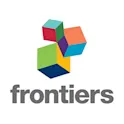
Frontiers news
01 Jul 2015
Have you ever tried to imagine the initial years in science of our Science Heroes? Perhaps you’ve pictured them as young scientists full of enthusiasm with an endless curiosity driving them in the attempt to understand the world. But in reality, how are those early years of a research career? How is the impulse to pursue the key to open questions developed, maybe threatened sometimes, through them? Looking back, were they really decisive moments? In this section, we provide some insight into those first steps in science by sharing the experiences of real young researchers around the world. The posts will give you the opportunity to learn about their journey with their own eyes and words as they go through those moments of uncertainty when questions arise — and perhaps an answer to those questions starts to take shape. Stay tuned for the first of our interviews to come!
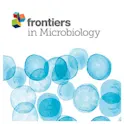
Frontiers news
01 Jul 2015
Catch up with the most viewed articles from Frontiers in Microbiology this June. All are Open Access – enjoy!

Frontiers news
01 Jul 2015
The most viewed articles from the “Frontiers in” Neuroscience journals from June 2015. All articles are Open Access – enjoy!
Get the latest research updates, subscribe to our newsletter